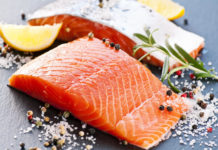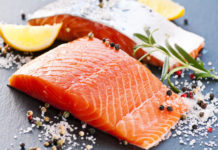
There's probably plenty of bloating gripes among your mom-friends—but the talk is likely about their own too-tight jeans, not about their kids' bellies. Fact is, children can absolutely get a distended, bloated belly too–and all the discomfort that comes with it. They just don't have the words to tell you. "Kids don't have the language to describe it as bloating," says Tamara Duker Freuman, RD, an expert in digestive health and the author of the new book The Bloated Belly Whisperer. "They'll say they have a tummy ache or that their stomach hurts."
The next time your child complains of belly pain and her tummy looks puffy, consider one of these possible causes:
1. She's swallowing air. Swallowing extra air, called aerophagia, can not only cause bloating but also nausea and loss of appetite. Some kids have a nervous habit of swallowing extra air when they're anxious or worried, says Freuman. (Others may simply gulp extra if they're a gum-chewer).
How to help: You can help your child cope with worries by teaching them deep breathing techniques (with my younger son, who is a worrier, we use a meditation app). In the meantime, over-the-counter simethicone, the same ingredient in the gas drops you gave your child as a baby, can help her feel better, says Freuman.
2. She's constipated. It's a huge problem among kids but often goes unnoticed by parents, especially if kids are old enough to use the bathroom by themselves. One common trigger: Kids may withhold because they don't feel comfortable using the bathroom at school (or, for younger kids, are resisting potty training). That can lead to painful bowel movements, constipation, and a hard, bloated belly.
How to help: Freuman suggests showing your kids the Bristol Stool Chart. Sure, it will make them giggle, but it will also teach them what healthy poop looks like—and when to let you know that they're having issues. More fiber, fluid, and exercise can help constipation. So can a regular bathroom schedule. Kids with chronic constipation should be seen by a pediatrician or GI doctor.
3. She has lactose intolerance. The onset of lactose intolerance, an inability to properly digest the natural sugar in milk, typically occurs during childhood or adolescence. But it can be tricky to pinpoint since the symptoms—including bloating, gas, and diarrhea—may not appear until 6-10 hours after lactose is consumed. So the milk your child had at breakfast may not bother her until dinnertime, says Freuman.
How to help: If you suspect lactose intolerance, talk to your child's pediatrician about getting a breath test to be sure.
4. She has IBS. Irritable bowel syndrome, like bloating, is often considered a grown-up problem. But many people with IBS had symptoms as children, says Freuman. Lots of kid-friendly foods are common triggers for either IBS-related constipation or diarrhea, such as milk, fruit, processed snacks, and chocolate.
How to help: Working with a dietitian who specializes in IBS can help you figure out diet changes that can ease symptoms. In some cases, it may be as simple as adding more fiber into your child's diet.
Sally Kuzemchak, MS, RD, is a registered dietitian, educator, and mom of two who blogs at Real Mom Nutrition. She is the author of The 101 Healthiest Foods For Kids. She also collaborated with Cooking Light on Dinnertime Survival Guide, a cookbook for busy families. You can follow her on Facebook Twitter Pinterest, andInstagram. In her spare time, she loads and unloads the dishwasher. Then loads it again.





